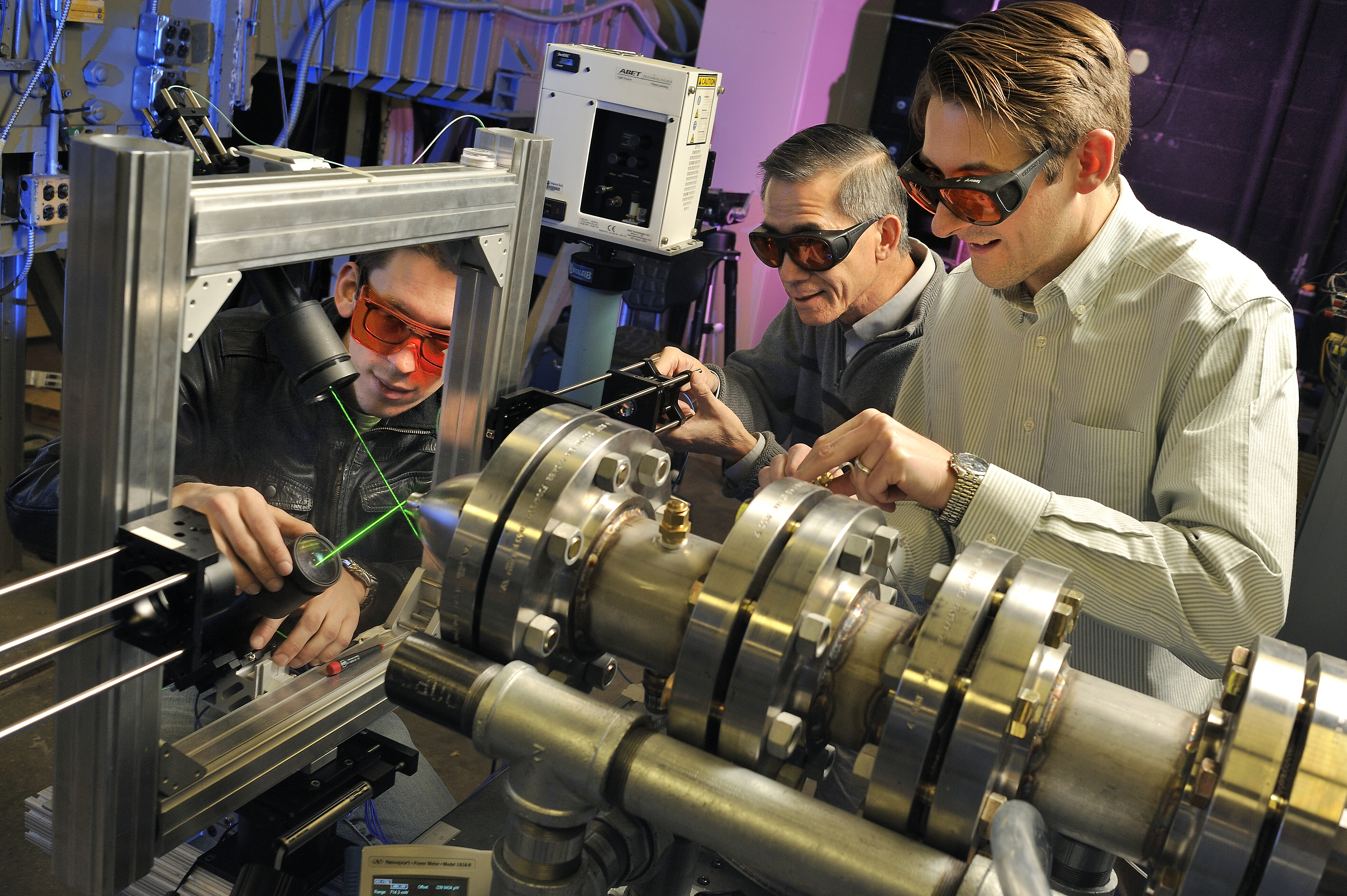Virginia Tech to join Rolls-Royce's university technology partnership network

Rolls-Royce announced Tuesday that Virginia Tech and the University of Virginia are joining the global Rolls-Royce University Technology Centers network, consisting of research groups in world-class universities identified to develop long-term research and technology programs. Creating a centers network provides each party with mutual benefits through funding of fundamental, collaborative research to advance key aerospace technologies critical to Rolls-Royce.
The announcement was made Tuesday at a ceremony on the Virginia Tech campus in Blacksburg, Va. A similar announcement will be made on the grounds of the University of Virginia Wednesday following the dedication of an advanced manufacturing lab at the school of engineering and applied science.
Rolls-Royce has enjoyed a strong relationship with both universities for over a decade. Together with the company, they form the Commonwealth Center for Aerospace Propulsion Systems and are founding members of the Commonwealth Center for Advanced Manufacturing. Today's incorporation of centers networks allows more specific, technical research at the university level that leverages the strengths of each institution that could eventually lead to new product development.
"We have a strong commitment to the Commonwealth of Virginia to build an advanced manufacturing and an aerospace industry hub at our Rolls-Royce Crosspointe campus in Prince George County. Tuesday's announcement further strengthens our relationship with Virginia's leading academic institutions of Virginia Tech and the University of Virginia by launching research projects that will ultimately be adopted on a global scale." said Ric Parker, director of research and technology for Rolls-Royce.
Virginia Tech
The centers network will specialize in the study of advanced systems diagnostics, flow modeling, power electronics and other subjects of interest. In particular, Virginia Tech will work closely with Rolls-Royce to develop methods for evaluating and validating propulsion systems and components. Virginia Tech has developed exceptional capability in the testing of aerospace components, systems, and engines, and has demonstrated a commitment to building that capability over the long term. The university will provide capability in the areas of laser diagnostics, system prognostics, combustion characterization, material and component lifting, advanced material systems, and thermo-acoustic analysis. Additional complementary areas of research include power electronics, manufacturing technology development, exhaust system diagnostics, engine system prognostics, and controls.
Important to the centers network research is Virginia Tech's newly opened Advanced Propulsion and Power Laboratory, a leading edge facility dedicated to the study of jet propulsion and the internal design of jet engines. Also opening at the university this summer is its Signature Engineering Building, the world's most instrumented public building for vibrations. Inside the building, a Rolls-Royce Trent 1000 jet engine hangs in the foyer as a centerpiece to the academic and research facility.
"Rolls Royce is one of the world's most successful and innovative companies and we are very excited that it has selected the campuses of Virginia Tech and University of Virginia to award its second and third university technology centers in the U.S.," said Richard Benson, dean of Virginia Tech's College of Engineering. "I speak for many Hokies in expressing our excitement at the opportunity to collaborate with Rolls-Royce and the University of Virginia at the forefront of research and education in aerospace propulsion systems and advanced manufacturing. This high-level of partnership will have a substantial impact on engineering education in Virginia, and I believe the high quality of our academic programs will be of great benefit to this worldwide enterprise."
University of Virginia
The centers network will specialize in the study of advanced material systems, flow modeling, and other fields. The University of Virginia will work closely with Rolls-Royce to investigate ceramic matrix composite materials for use in aerospace and other high-technology markets. The materials offer high strength at the extreme temperatures and pressures encountered in aerospace applications, but with significantly reduced weight. The university also provides cutting-edge capability in advanced coatings, including novel compositions and application methods. Complementary areas of research at the University of Virginia include: catalytic coatings, soot emissions, aqueous corrosion, and manufacturing technology development.
"We are delighted to partner with Rolls-Royce," said James H. Aylor, dean of the University of Virginia School of Engineering and Applied Science. "This partnership has enabled us to build on existing strengths in the school that are critical to our nation and the world through new faculty hires, sponsored research, fellowships, internships and creation of the Advanced Manufacturing Laboratory."
The centers network will focus on fundamental research that can feed into the university's applied research activities in CCAM. "This supports creation of a pipeline that will accelerate the evolution of new ideas from concept to commercialization," said Aylor.
Rolls-Royce North American headquarters are located in Reston, Va. In addition, the company has a growing, 1,000-acre campus in Prince George County. Rolls-Royce Crosspointe is a manufacturing hub of innovation, with over $300 million investment by the company, resulting in nearly 300 jobs by the end of 2014.




